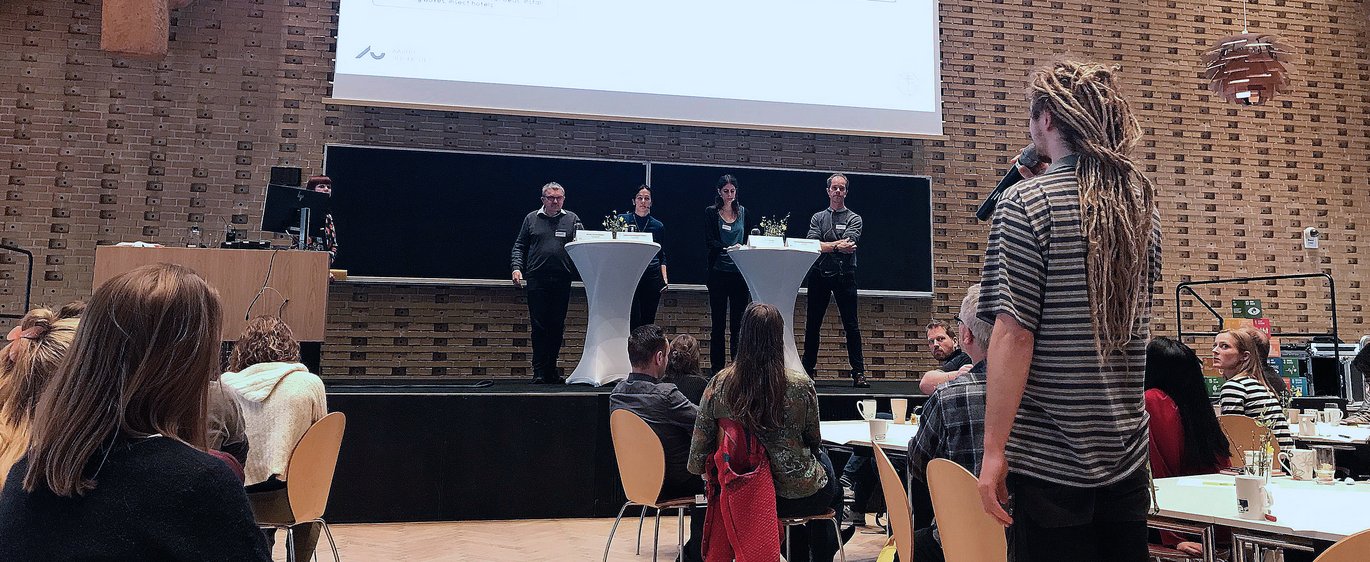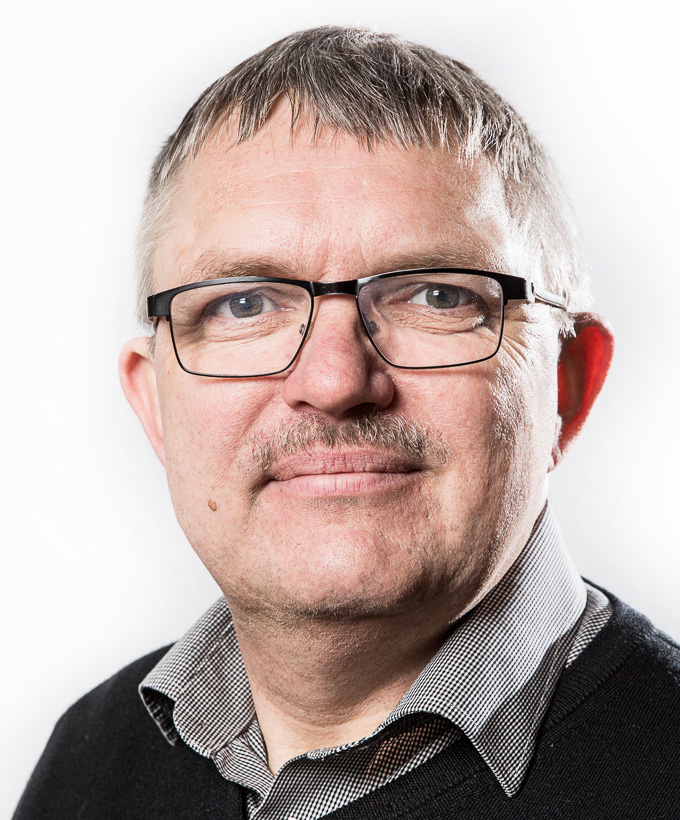Sustainability seminar: “Let’s be brave now. A CO2-neutral AU in five years”
Think big. Several participants in last Thursday’s sustainability seminar urged AU to set a goal of achieving CO2 neutrality in five years. University Director Arnold Boon was receptive to the idea.


Translation: Lenore Messick.
A table is covered with stacks of mugs. Some are round, some are square; others have Christmas themes. They’re all recycled. That’s obvious not only because there’s a sticker on each mug that reads ‘I come from Reuse’, but because the mugs – along with the accompanying oat milk - were referred to several times during the sustainability seminar at AU last Thursday.
The 150 employees and students who attended were clearly hungry for sustainable change. And change is in the air: the seminar was conceived as a brainstorm to generate sustainable initiatives to be included in AU’s coming sustainability strategy.
There was no shortage of good ideas.
Start sorting waste.
An end to air travel within Europe for AU employees.
Give the canteens an incentive to become more sustainable by having them compete for the title of ‘Sustainable canteen of the year’.
And let them sell the day’s leftovers cheaply ‘to go’ in the late afternoon.
Empower cycling culture by having rental bikes at AU.
READ MORE: Connie Hedegaard:”Sustainability is part of being an ordinary well-informed person”
Time is running out
Scores of ideas were in play at the seminar. But part of the exercise was also to prioritize them: the best ideas were to be selected and presented to the management. And it soon became very clear that a lot is at stake.
During a discussion of an idea to develop green transportation to and from AU, for example using shuttle busses, Professor Jørgen E. Olsen made it clear that we need to be working on more than one front:
“It’s extremely important to make green cars and so on. But there’s no getting around the fact that we also have to compensate for our CO2 emissions, because we don’t yet have the solutions to avoid airplanes, for example. Someone need to be studying and researching how this should be done, because we still haven’t seen forms of compensation that work and that we can trust. We need to be doing research on that.”
A participant asked:
“Why compensate when electric cars, hydrogen cars and other solutions are right around the corner?”
Stepping forward, Olesen replied emphatically:
“That would be far too late. And it’s not enough.” There was silence in the room.
AU should compensate for its emissions
Climate researcher Jørgen E. Olesen also opened the seminar with a short talk on the climate reality the world is facing. He made it absolutely clear that if we are to have any hopes of holding the global average temperature increase to a maximum of 1.5 degrees, we have to get busy – now. Because to achieve that, we have to reach zero emissions in 2030.
“But how likely is that? It’s not at all likely. Alternatively, we must reduce our emissions and let the coming generations clean up after us and remove CO2 to remain below 1.5 degrees. The reality is that we aren’t going to reach zero emissions in this century, and so we will have to capture CO2 and store it somewhere in the world,” the professor concluded, and explained that this will involve capturing, compressing and storing CO2 underground.
“The problem is that this isn’t being done anywhere in the world.”
One of Olesen’s own proposals was for AU to take the lead and invest in research on CO2 sequestration in bogs or forests, which would contribute to reducing AU’s own carbon footprint and guarantee a reliable form of CO2 compensation.
High ambitions
One proposal that was mentioned several times during the seminar was to measure AU’s CO2 emissions. As Olesen put it:
“Someone has to calculate it. Because if we don’t, we can’t track the development. We have to have a plan and a budget. We need some numbers!”
Olesen was seconded by Tomas Refslund Poulsen, team leader for the University’s of Copenhagen’s Green Campus initiative, which has succeeded in reducing UCPH’s CO2 emissions by over 50 percent since 2006.
“You have to know your numbers – otherwise you can’t make any big wins,” Poulsen said.
Once again, it was Olesen who set the bar high:
“I think we need to set an ambitious goal: We’re CO2 neutral in five years!” he said, to general applause.
This was a goal the participants could really get behind. Later, one woman stood up and said:
“Come on, let’s be brave. A CO2 neutral AU in five years.”
The university director: “Whether it should be five years or ten years, I don’t know”
University Director Arnold Boon closed the seminar with a short talk. He listed some of the points that had made an impression on him:
“I believe that AU needs a transportation policy – also for commuting. We have to measure our emissions, and we have to compensate. I also believe we need a food policy,” Boon said.
And perhaps most important of all:
“We have to have a plan. Whether the goal should be a CO2 neutral AU in five years or ten years, I don’t know. But some ambition would be a good thing.”
AU is now launching a network of sustainability ambassadors that will include both employees and students.

